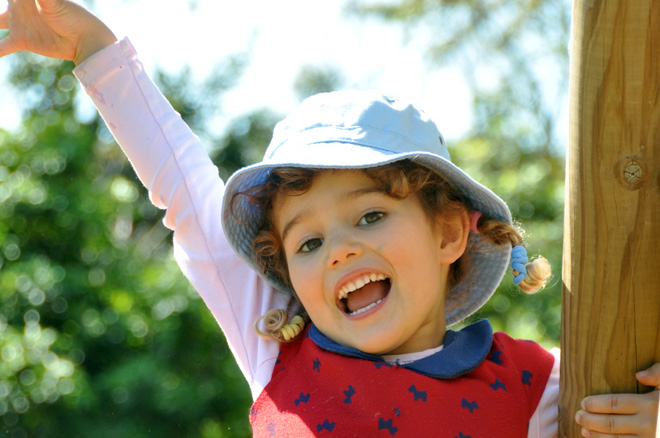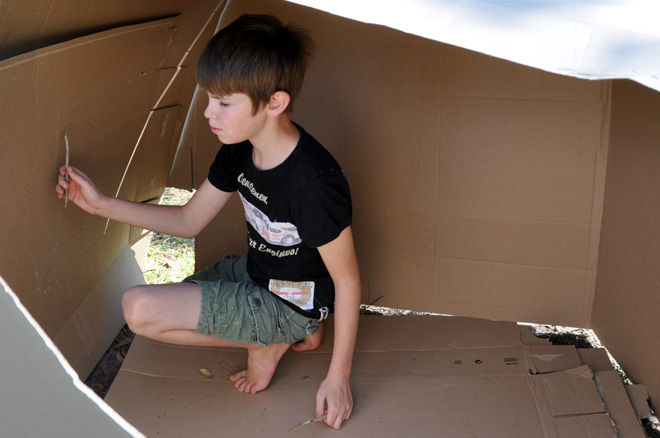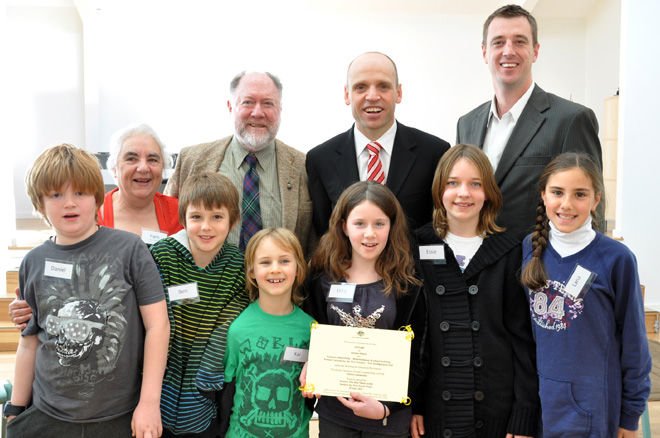Our core principles
Kinma Core and Guiding Principles
At Kinma we …….
- strive for each child to achieve his or her full academic, physical, and social potential in a supportive, stimulating learning environment
- develop an educational program which is child-centred, innovative and based on an understanding of child development
- respect the individuality of the child
- foster self-determination in the child
- develop the child's exploration, critical thinking and creative abilities
- stress co-operation rather than competition
- emphasise active involvement in a wide range of learning situations
- utilise the resources of our bush environment and the community
- maintain high academic standards
- are non-denominational, co-educational with small flexible multi age groups and no uniforms
- support the emotional well-being of children and teachers and abstain from corporal punishment and other coercive and manipulative approaches
- conduct individual assessments and not competitive exams
- respect and safeguard the professional status of teachers
- strive for co-operation between teachers, other educators, parents, and children and provide regular educational and social opportunities for close relationships to be formed between teachers, pupils and parents and to involve parents in aspects of the day to day work of the school
- allow pupil participation in the affairs of the School and encourage involvement in the community outside the School
- apply the latest findings from education, psychology and related fields to the improvement of learning within the school
- stimulate public interest in education in general, especially modern approaches to learning. In doing this, Kinma acts as a demonstration centre from which educational practices and innovations may diffuse to other schools

The way children learn
Children possess an innate desire to learn. From an early age children pose questions, problem-solve, play and interact with their environment. Teachers at Kinma provide learning situations that encourage, stimulate and support the development of each child's inherent array of intelligences.
Central to this individualised approach is the acknowledgement that humans possess multiple intelligences.
As Howard Gardner outlines;
- Linguistic intelligence involves sensitivity to spoken and written language, the ability to learn languages, and the capacity to use language to accomplish certain goals. This intelligence includes the ability to effectively use language to express oneself rhetorically or poetically; and language as a means to remember information. Writers, poets, lawyers and speakers are among those that Howard Gardner sees as having high linguistic intelligence.
- Logical-mathematical intelligence consists of the capacity to analyze problems logically, carry out mathematical operations, and investigate issues scientifically. In Howard Gardner's words, it entails the ability to detect patterns, reason deductively and think logically. This intelligence is most often associated with scientific and mathematical thinking.
- Musical intelligence involves skill in the performance, composition, and appreciation of musical patterns. It encompasses the capacity to recognize and compose musical pitches, tones, and rhythms. According to Howard Gardner musical intelligence runs in an almost structural parallel to linguistic intelligence.
- Bodily-kinesthetic intelligence entails the potential of using one's whole body or parts of the body to solve problems. It is the ability to use mental abilities to coordinate bodily movements. Howard Gardner sees mental and physical activity as related.
- Spatial intelligence involves the potential to recognize and use the patterns of wide space and more confined areas.
- Interpersonal intelligence is concerned with the capacity to understand the intentions, motivations and desires of other people. It allows people to work effectively with others. Educators, salespeople, religious and political leaders and counsellors all need a well-developed interpersonal intelligence.
- Intrapersonal intelligence entails the capacity to understand oneself, to appreciate one's feelings, fears and motivations. In Howard Gardner's view it involves having an effective working model of ourselves, and to be able to use such information to regulate our lives.
- Naturalist intelligence enables human beings to recognize, categorize and draw upon certain features of the environment. It 'combines a description of the core ability with a characterization of the role that many cultures value' (ibid.: 48).
Teachers at Kinma carefully take all these "intelligences" into account whilst programming.They allow students to utilise their natural intelligences and work with supporting new areas of learning modalities. For example, if a child is strong in musical intelligence, the knowledge of this strength can be used by the teachers to enhance learning in other areas. Subsequently, the child benefits by learning in the style that is most suitable to him/her.

Society & citizenship
Children develop an awareness of the rights of themselves and others through play and through the daily experience of resolving conflicts and working together cooperatively.
The school recognises its place in the wider community and the need for our children to develop skills and attitudes through which they will shape their own personal philosophy of life.
Cooperation, trust, integrity and friendship are fostered both within the school community and in the consideration of the wider community.
Social responsibility starts with the individual and develops through the school and into the world beyond.
Through the development of self-confidence, children develop independence and self-motivation which allows them to become socially responsible adults.

Term Dates 2025
- Term 1: Tues 4 February to Fri 11 April
- Term 2: Wed 30 April to Fri 27 June
- Term 3: Wed 23 July to Fri 26 Sep
- Term 4: Wed 15 Oct to Wed 17 Dec
Term Dates 2026
- Term 1: Mon 2 Feb – Thu 2 April
- Term 2: Wed 22 April – Fri 26 June
- Term 3: Wed 22 July – Fri 25 Sep
- Term 4: Wed 14 oct – Wed 16 Dec
Contact us
127 Coolowie Rd,
Terrey Hills NSW 2084
Find us on Google Maps
Primary: +61 2 9450 0738
Preschool: +61 2 9486 3018
Email Kinma

